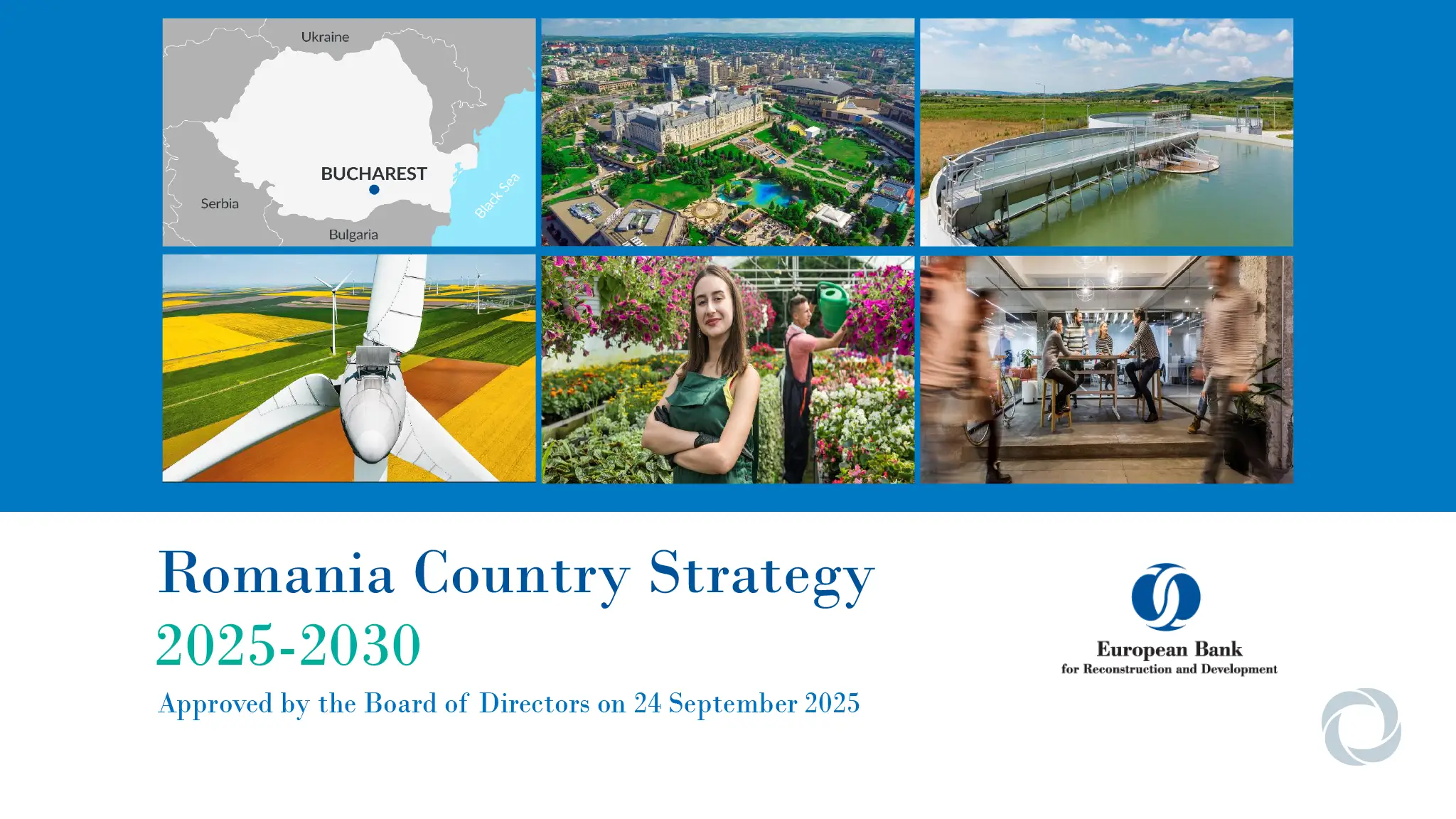The European Bank for Reconstruction and Development (EBRD) approved a new five-year strategy for Romania that will focus on making the country’s businesses more competitive and helping its green economy transition, according to EBRD.
The bank’s board of directors signed off on the 2025-2030 plan that targets private-sector competitiveness, economic resilience, and environmental goals. EBRD has already put over €12 billion into Romania’s economy and combines investments with reform support to improve the business environment. The new strategy aims to help Romania keep catching up with richer EU countries while fixing structural problems that still hold it back.
Romania has done well since joining the European Union in 2007, with income per person and worker productivity reaching about 80% of the EU average. The country’s economy held up better than most during COVID-19 and the Ukraine war, contracting less than other EU nations. But Romania still faces challenges that the EBRD strategy wants to tackle.
The bank will focus on helping Romanian companies innovate, get better access to financing, and improve how they’re run between 2025 and 2030. The strategy also pushes for stronger economic resilience and faster movement toward green technologies that can reduce pollution and create new jobs.
“Our new country strategy is an active response to Romania’s most pressing economic issues,” said Victoria Zinchuk, EBRD’s Regional Director for Romania. “It provides a framework for targeted investments and policy engagement that can help the country overcome its immediate fiscal crisis and build a more sustainable and prosperous future.”
The plan should help Romania continue narrowing the wealth gap with Western Europe while building a cleaner, more competitive economy.

